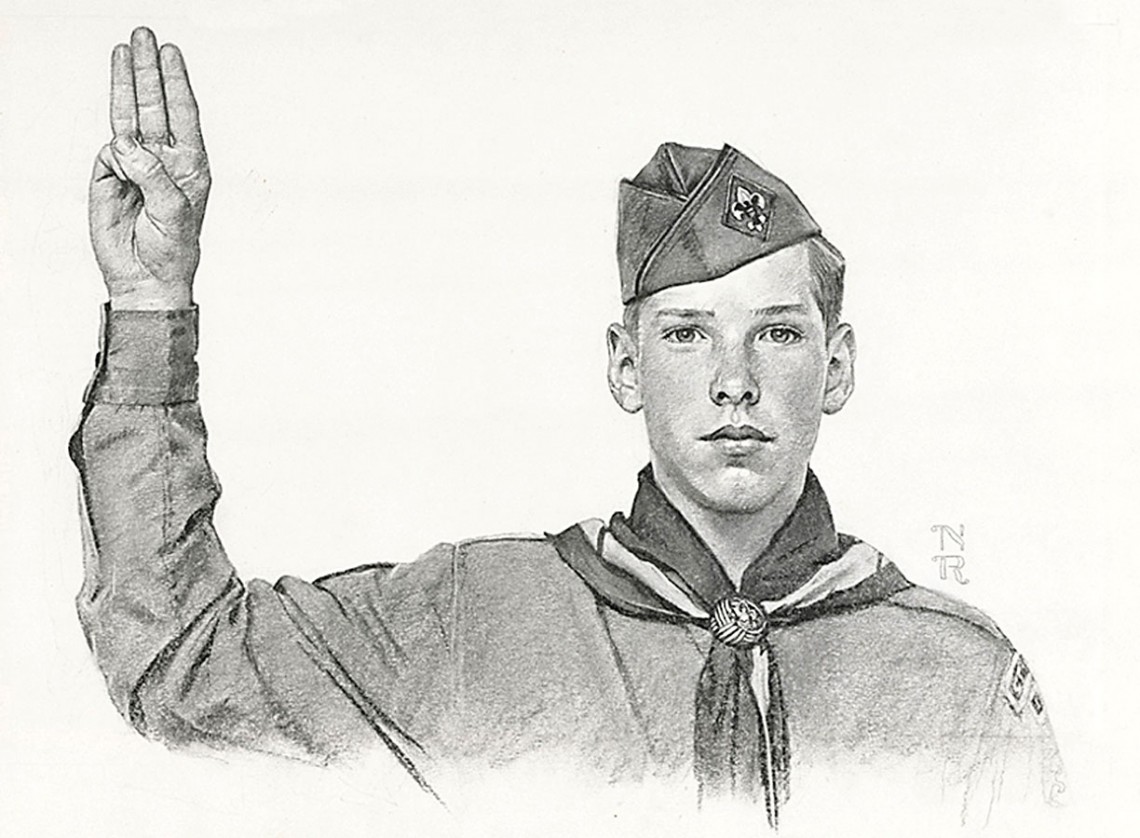Where does justice end and humanity begin? I wish I were sure. Perhaps you have read this story by now of the 94-year-old former Boy Scout leader who has been arrested and charged with molestation. That was my scoutmaster.
Before you ask, no, he never touched me inappropriately, and, yes, I believe the charges. It’s a sad and unfortunately all-too-common story these days. In addition to serving as a scoutmaster, he was an elementary school P.E. teacher and a counselor at a summer camp. From over the course of his 50+ year career, a number of people have come forward to say that their trusted teacher/counselor/scout leader repeatedly groped them, and many more have chimed in with memories of a man who engaged in what a personnel file calls “excessive ‘physical contact’” with students.
My first instinct is to throw the book at him. I have no tolerance for sexual abuse, and as a parent, too, the thought that someone would be molesting my child brings out every vindictive instinct I have.
But it’s more complicated than that. Only two victims have been willing to file a criminal charge, and both of those mention activity that occurred more than a quarter century ago. In fact, the state where most of the abuse is believed to have occurred has a statute of limitations that prevents criminal charges based on long-ago memories. If a case moves forward, it will take place halfway across the country, in a different state where the scout leader also worked for the summer. Oh, and did I mention that the defendant has been living in a third state for the last 20 years and is now under hospice care for congestive heart failure? He was recently permitted home confinement, having previously spent multiple days in the county jail following arrest. His mug shot, which you can easily find on the web, shows him under blankets with oxygen tubes.
The simple truth is that the criminal justice system is not well equipped to deal with cases like these. The victims understandably want justice, especially where there are allegations that larger institutions like public schools, town councils, and scouting may have ignored signs of a pedophile in their midst. If the scandals of the Catholic Church or Penn State have taught us anything, it’s that the responsible parties should be held accountable. On the other hand, how much accountability can we expect from a 94-year-old man who is likely to die before his case reaches trial? Certainly, his legacy is now tainted, but it’s hard to imagine that the victims simply want to see him wearing an ankle bracelet as he sleeps 17 hours a day and waits for death to come. What I suspect they want – and what the criminal justice system all too rarely provides – is restorative justice: a chance to reclaim their innocence; an opportunity to confront their molester; the prospect of a genuine public apology that begins to lift their shame and restore their dignity.
I study this subject and teach it as a professor, and yet I find myself struggling with a solution.
My deeper struggle is that I know some of the accusers, as well, and my heart goes out to them; they grew up in a time when it wasn’t socially acceptable to disclose abuse. But I also cannot ignore the many good deeds of the accused, himself. He was a World War II veteran, a hero who earned the Silver Star. He also was a good scout leader to me — he taught me how to camp, ski and canoe. He modeled hard work, responsibility and discipline.
Except, of course, when he was molesting children. That trips me up every time I get to it. I want to understand, I want to forgive, but I also want justice for those boys. The more I think about this case, the angrier and more frustrated I feel. Angry, certainly, about what was done to the children, and disappointed, too, about how these disclosures and the ensuing prosecution have splintered images of my childhood. Even more, however, I’m frustrated by a situation that calls for a broader response yet has limited options. Where does justice end and humanity begin? Here — with this case.
Jon Gould is a professor at American University.
Image: x-ray delta one via photopin









